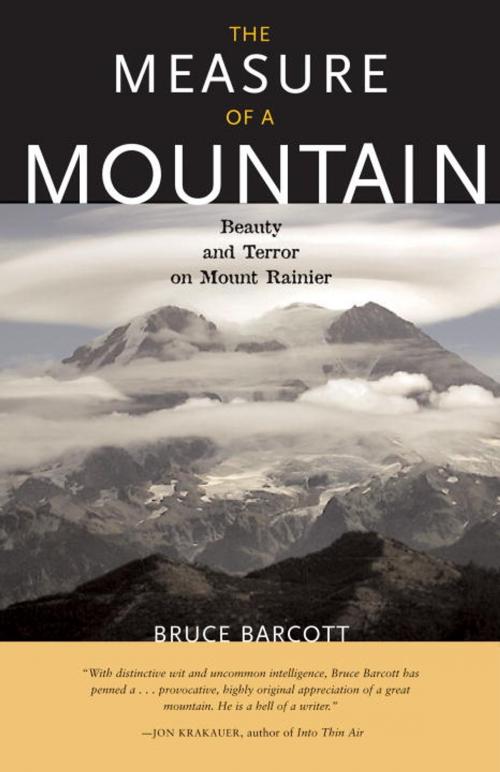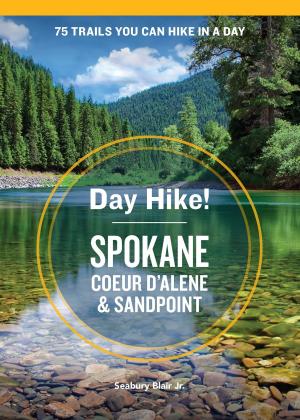Measure of a Mountain
Beauty and Terror on Mount Rainier
Nonfiction, Science & Nature, Nature, Environment, Mountains, Sports, Outdoors, Mountaineering, Travel, United States, West| Author: | Bruce Barcott | ISBN: | 9781570618000 |
| Publisher: | Sasquatch Books | Publication: | February 1, 2011 |
| Imprint: | Sasquatch Books | Language: | English |
| Author: | Bruce Barcott |
| ISBN: | 9781570618000 |
| Publisher: | Sasquatch Books |
| Publication: | February 1, 2011 |
| Imprint: | Sasquatch Books |
| Language: | English |
In The Measure of a Mountain, Seattle writer Bruce Barcott sets out to know Rainier. His method is exploratory, meandering, personal. He begins by encircling it, first by car then on foot. He finds that the mountain is a complex of moss-bearded hemlocks and old-growth firs, high meadows that blossom according to a precise natural timeclock, sheets of crumbling pumice, fractured glaciers, and unsteady magma. Its snow fields bristle with bug life, and its marmots chew rocks to keep their teeth from overgrowing. Rainier rumbles with seismic twitches and jerks—some one-hundred-thirty earthquakes annually. The nightmare among geologists is the unstoppable wall of mud that will come rolling down its slopes when a hunk of mountain falls off, as it does every half century (and we’re fifty years overdue). Rainier is both an obsession and a temple that attracts its own passionate acolytes: scientists, priests, rangers, and mountain guides. Rainier is also a monument to death: every year someone manages just to disappear on its flanks; imperiled climbers and their rescuers perish on glaciers; a planeload of Marines remains lodged in ice since they crashed into the mountain in 1946. Referred to by locals as simply "the mountain," it is the single largest feature of the Pacific Northwest landscape—provided it isn’t hidden in clouds. Visible or not, though, it’s presence is undeniable.
In The Measure of a Mountain, Seattle writer Bruce Barcott sets out to know Rainier. His method is exploratory, meandering, personal. He begins by encircling it, first by car then on foot. He finds that the mountain is a complex of moss-bearded hemlocks and old-growth firs, high meadows that blossom according to a precise natural timeclock, sheets of crumbling pumice, fractured glaciers, and unsteady magma. Its snow fields bristle with bug life, and its marmots chew rocks to keep their teeth from overgrowing. Rainier rumbles with seismic twitches and jerks—some one-hundred-thirty earthquakes annually. The nightmare among geologists is the unstoppable wall of mud that will come rolling down its slopes when a hunk of mountain falls off, as it does every half century (and we’re fifty years overdue). Rainier is both an obsession and a temple that attracts its own passionate acolytes: scientists, priests, rangers, and mountain guides. Rainier is also a monument to death: every year someone manages just to disappear on its flanks; imperiled climbers and their rescuers perish on glaciers; a planeload of Marines remains lodged in ice since they crashed into the mountain in 1946. Referred to by locals as simply "the mountain," it is the single largest feature of the Pacific Northwest landscape—provided it isn’t hidden in clouds. Visible or not, though, it’s presence is undeniable.















